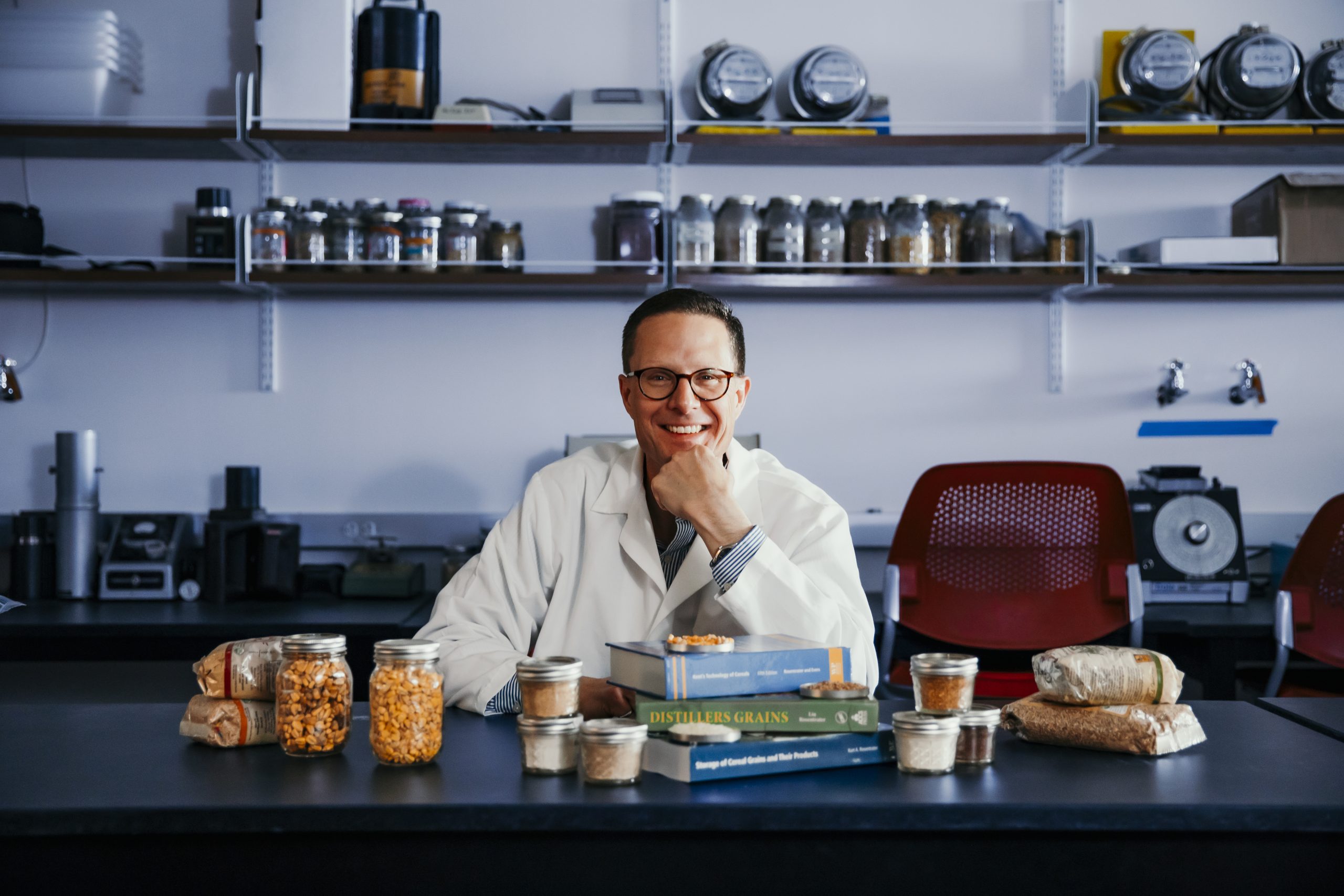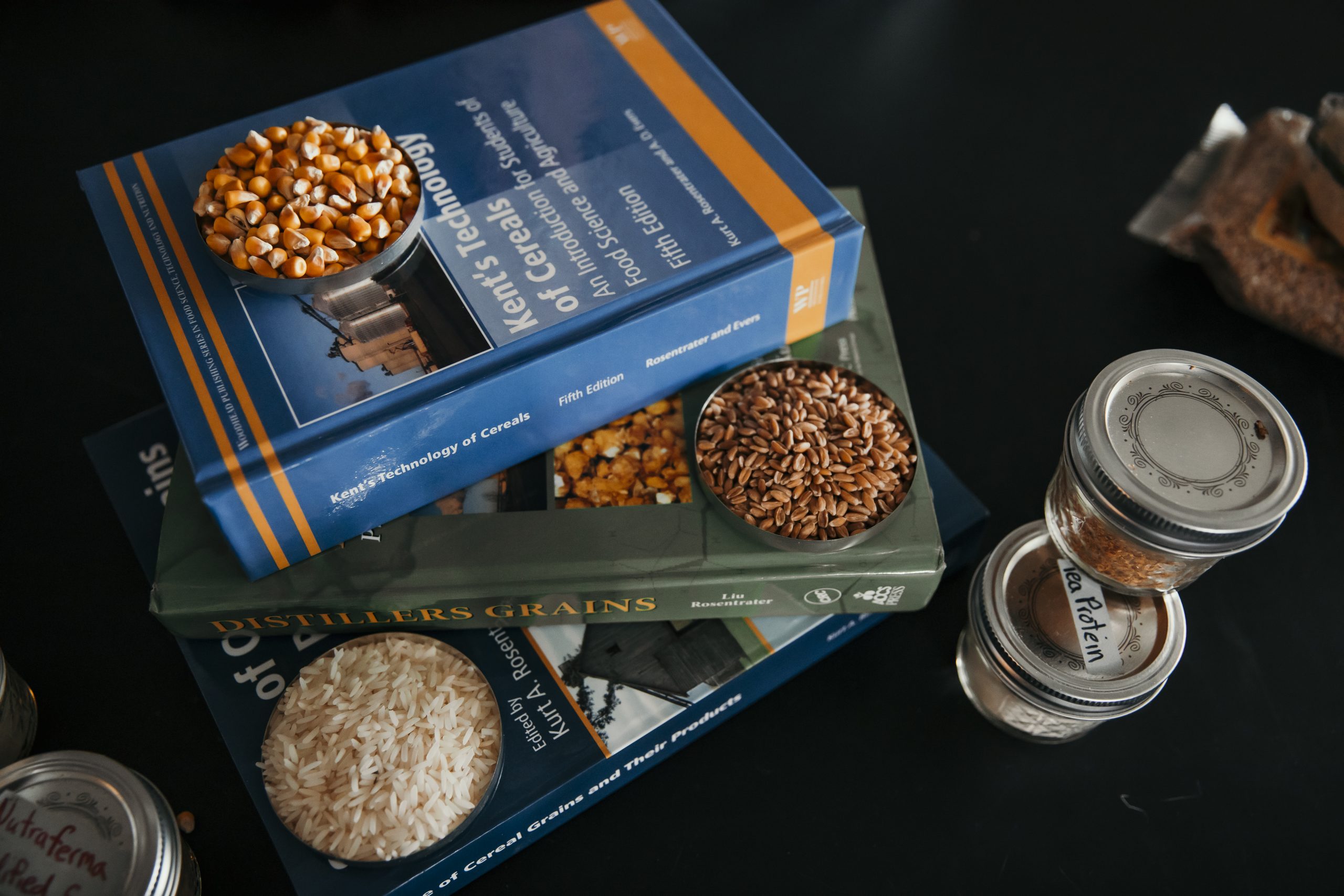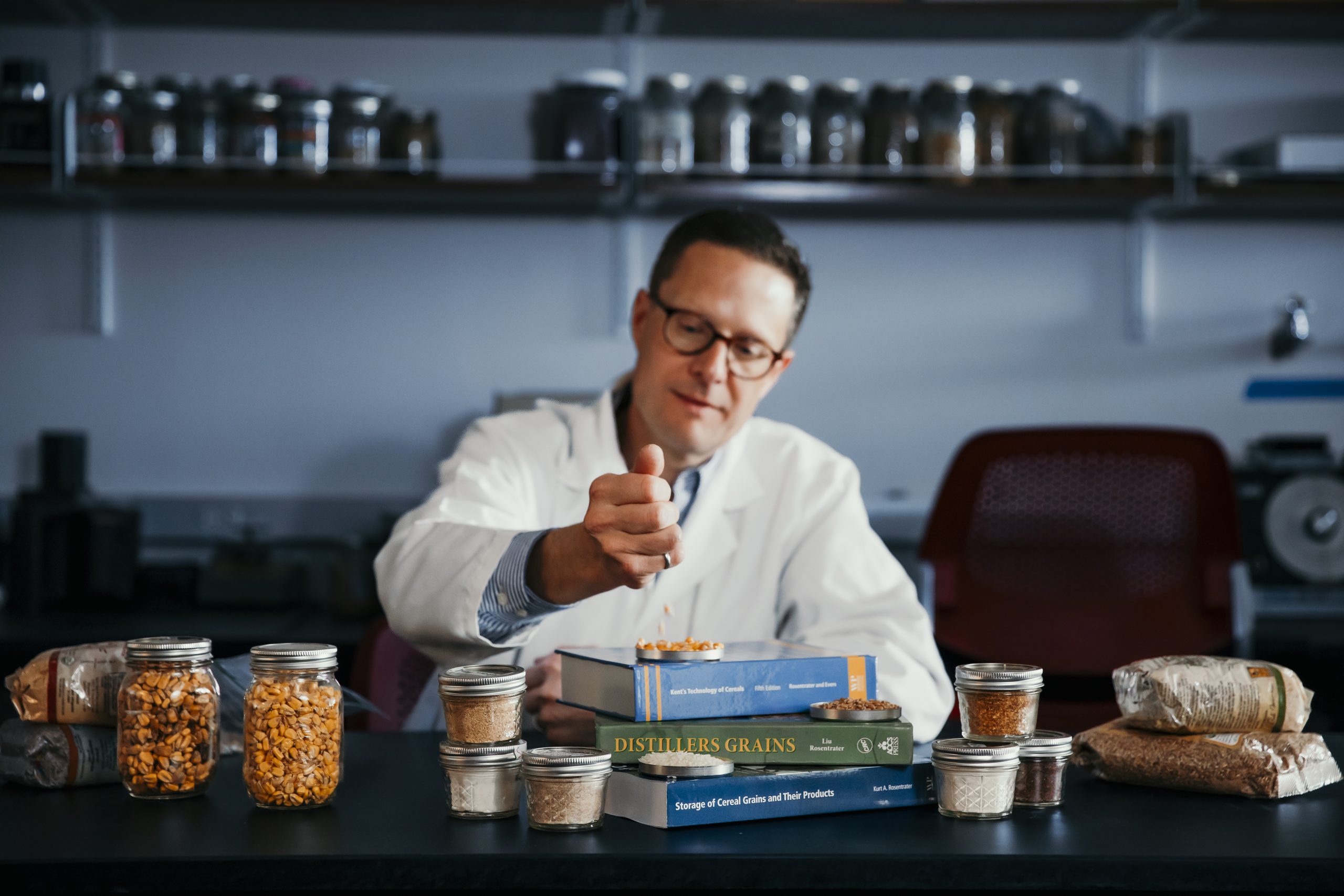Food, fuel, medicine: Grain is everywhere and evolving, Kurt Rosentrater says
Author: Sarah Hays
Author: Sarah Hays

If you need to talk to an expert on grain, Kurt Rosentrater is the expert for you.
Growing up in Northwest Iowa, Rosentrater lived on a farm with cattle, swine, and of course, lots of grain. His days were often filled with grain, from driving a combine to working with a grain elevator and everything in between. And grain fascinated him. So as most scientists do, Rosentrater jumped headfirst into his interest and soon-to-be passion, grain.
Now, Rosentrater has an established reputation as a grain expert on campus. Rosentrater is an associate professor in the Department of Agricultural and Biosystems Engineering and teaches about grain, researches grain, writes books about grain, and most recently started a podcast about grain.

To Rosentrater, grain is the story of humanity, production ebbing and flowing with historical moments throughout history. While not many recent technological creations can say they have been with humanity for ages, grain can.
“Our society, and other societies, are predicated and built on the grain industry,” Rosentrater says. “Whether it is in the form of ethanol, beer or Cheetos, the grain industry has been a huge part of society for millennia.”
Grain is currently primarily used for feed, food, fuel and beverage alcohols. But what else can grain do? Could it become clothes, materials or medicines?
“What other purposes are there for grain other than food and fuel? We have been fermenting grain for thousands of years, so besides food and fuel, what can we do with grain? I think the idea of moving towards bio-based products is rapidly growing,” Rosentrater said. “Whether they are a plastic, fabric or textile, there are so many things you can do with grain.”

There are dozens of different types of grains. Globally, there are three main grains: corn, wheat, and rice. And as grain has built societies by feeding and fueling communities, what it could become in the future is seemingly endless, providing for our environment in ways that are not only efficient but also sustainable.
“Grain is global. It intersects our society with other societies,” Rosentrater said. “We are moving towards this circular, bio-based economy. The discussion in the United States and so many countries is reducing the carbon footprint, greenhouse gas emissions and climate change, and grains are going to be part of that solution.”
Grain is relatively simple to grow and provides several nutrients, including starch, carbohydrates, proteins and oil.
“Grain as bio-plastics and bio-chemicals? That’s the next big wave,” Rosentrater said. “Can we use plants, corn, and other grains to produce antibiotics or antivirals? There is potential for that in the future, as well.”
As the future of grain continues to evolve, Rosentrater wants his knowledge of grain to evolve, too. And along the way, he wants to share his knowledge with the world. You can listen to Rosentrater’s podcast, The Cereal Grain Cafe, on most podcast streaming platforms. Rosentrater also has several books published about grains from the distillery process to grain storage, and more in between.